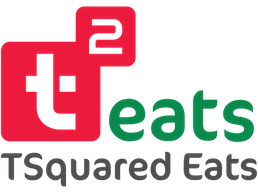Why Most Diets Fail
In a world where diet plans promise rapid results, keto, paleo, intermittent fasting, detox cleanses, the truth is sobering: most diets are not designed for real life. They focus on restriction, perfection, and rigid rules, which quickly become impractical for professionals juggling careers, family, travel, and social life.
This is why at TSquared, we talk about nutrition systems, not diets. Systems are flexible frameworks that guide daily choices, work under imperfect conditions, and support long-term progress, not just short-term weight loss. They help people move beyond the all-or-nothing mentality, making healthy eating part of how they live, rather than something they “go on” temporarily.
The Importance of Consistency Over Perfection
One of the biggest barriers to sustainable nutrition is the belief that every meal must be perfect. In reality, it is not isolated meals but overall patterns that determine outcomes. A nutrition system recognises this by focusing on structure and balance rather than micromanagement.
A weekend meal out, occasional dessert, or glass of wine does not derail a sound nutrition system, as long as the core structure is intact. When meals are consistent in their quality and composition, most of the time, the body responds: stable energy, improved body composition, reduced cravings, and better metabolic health.
This approach also reduces psychological strain. When food decisions are simplified into a sustainable system, eating becomes easier, less emotional, and less prone to reactive binges or cycles of restriction and overindulgence.
What a Real-Life Nutrition System Looks Like

A real-life nutrition system rests on a few core principles that respect physiology, psychology, and practicality.
Firstly, balance matters more than elimination. Carbohydrates, proteins, and fats all have roles to play, carbs for fuel, protein for repair and satiety, fats for cellular health and hormone production. Systems that demonise one macronutrient category tend to fail over time because they ignore basic human biology and create excessive restriction.
Secondly, portion control is essential. Even nutrient-dense foods can contribute to overconsumption if eaten mindlessly or in excess. Pre-plated, macro-balanced meals help avoid this trap by guiding quantity as well as quality.
Thirdly, meal timing must align with lifestyle rhythms. For busy professionals, that may mean structuring meals around meetings, workouts, and family commitments, not rigid mealtimes dictated by fad diet rules. The goal is predictability: knowing that the next nourishing, balanced meal is planned and within reach, reducing decision fatigue and temptation.
Also read: Understanding Macronutrients: Protein, Carbs, and Fats for Better Health
Nutrition Systems Are Personal
At TSquared, we emphasise that no single system works for everyone. Sedentary professionals may need a lighter calorie framework, while active individuals require higher protein and carbohydrate intake to fuel training and recovery.
Vegetarians, flexitarians, and those with specific food preferences or intolerances need thoughtful adaptation, not blanket advice. The key is personalisation: respecting preferences while ensuring each meal supports energy, recovery, and satiety.
This is where TSquared Eats thrives: we don’t offer one-size-fits-all meal boxes. We deliver macro-balanced, chef-prepared meals tailored for busy professionals, allowing them to adhere to a sound nutrition system without spending hours in the kitchen.
Why Mindful Eating Complements the System

Even the best-designed nutrition system can falter if food is consumed mindlessly. Eating in front of screens, rushing through meals, ignoring hunger and fullness cues all undermine the benefits of a carefully planned approach.
Mindful eating, slowing down, noticing flavours and textures, and recognising satiety signals, helps bridge the gap between nutritional intent and actual behaviour. It allows individuals to honour both hunger and satisfaction, which reduces unconscious overeating and improves the relationship with food.
Nutrition Systems vs. Short-Term Diets
The key difference between a nutrition system and a diet is sustainability. A diet focuses on restriction, often with an arbitrary end date. A system is designed to work for the long haul, including holidays, social occasions, and life’s unpredictability.
This mindset shift is critical for sustainable progress. When nutrition is structured as a system, slip-ups are not viewed as failures but as normal fluctuations within a larger pattern of consistency.

Final Thoughts
At its core, a nutrition system is a tool for freedom. It liberates busy professionals from reactive eating, poor choices driven by stress or time scarcity, and the endless cycle of dieting and rebounding.
At TSquared, we help clients design these systems, whether through personalised guidance, ready-to-eat balanced meals, or education on how to structure food choices for life, not just a season.
Sustainable progress doesn’t come from perfection. It comes from a clear, flexible system that makes healthy eating the path of least resistance, so that clients feel better, perform better, and age stronger, with food working for them, not against them.
Also read: Superfoods and Their Role in Your Diet

